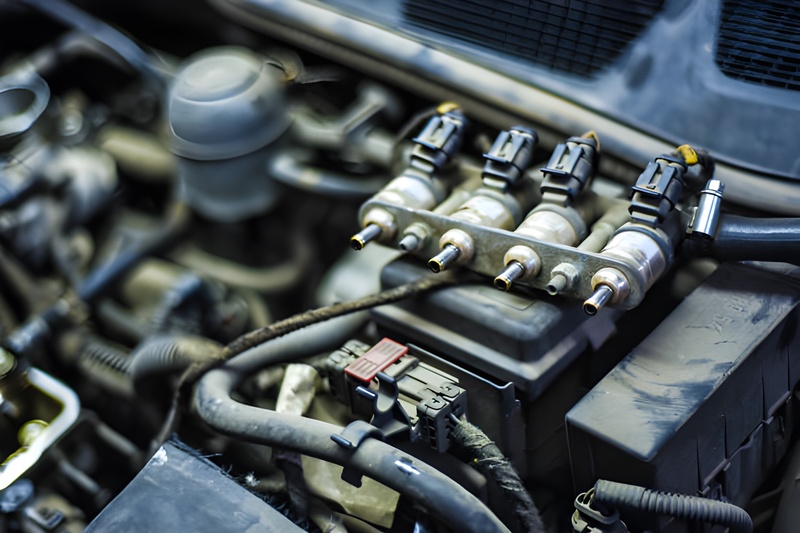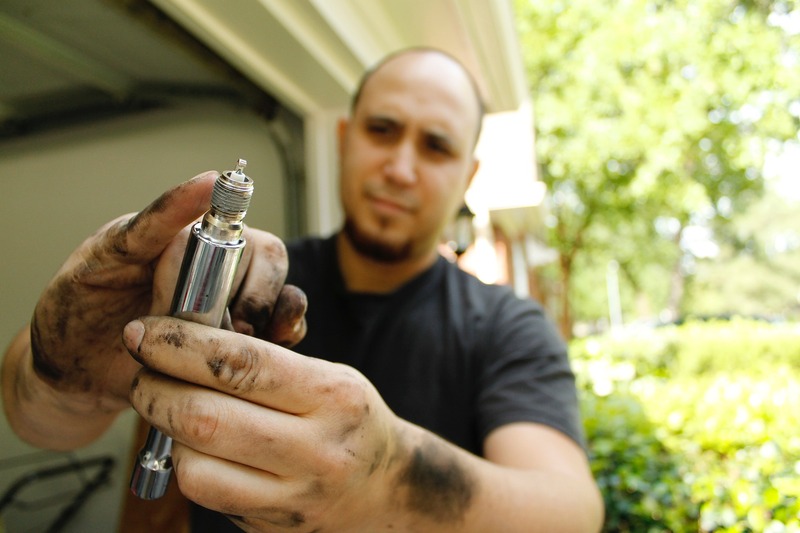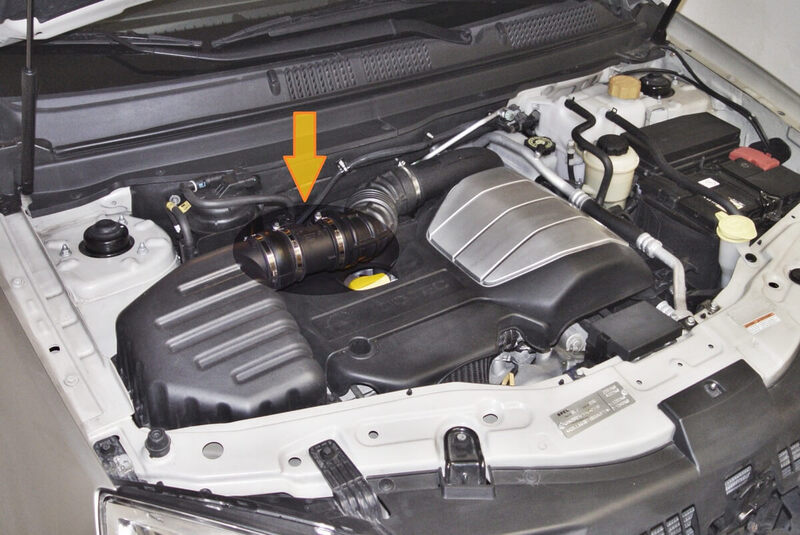In the context of automotive performance, a few experiences are as frustrating as the sudden jerks experienced while cruising at a constant speed. These unexpected interruptions not only disrupt the peacefulness of the drive but also raise concerns about the underlying health of the vehicle.
Investigating the complexities of vehicle mechanics, this article explores the top 10 reasons why your car might exhibit such erratic behavior, shedding light on potential issues ranging from minor inconveniences to significant mechanical malfunctions.
Whether it’s a subtle shudder or a noticeable jolt, understanding these causes is the first step towards restoring smooth and uninterrupted journeys on the road.
10 Key Reasons Behind Car Jerks When Accelerating at Low Speeds:
Here are the possible reasons why a car jerks while driving at a constant speed:
1. Dirty Fuel Injector:

The source of the car jerking while driving could very likely come from a dirty fuel injector. A dirty fuel injector not only interrupts the smooth functioning of a car, but can also reduce your mileage and increase air pollution through excessive and inefficient use of fuel. Fuel injectors get blocked with substances like varnish, moisture, and dirt which affects their functioning. To prevent this from happening it is important that you keep an eye on the health of your fuel injectors and get them cleaned or serviced as necessary!
2. Bad Fuel Pump:
The fuel pump is in charge of keeping the right amount of fuel in the engine and making sure it’s running smoothly. Because the fuel pump controls this process, when it isn’t working correctly, the car can jerk as if it’s not getting enough power while maintaining a certain speed. When a fuel pump is dirty
In this case, you’ll need to take your car in for repairs so a professional can diagnose which parts are faulty and what needs to be replaced.
3. Bad Spark Plugs:

Spark plugs provide an electrical charge to the combustion chamber of an engine in order to cause ignition and power the car. Over time, spark plugs can become worn and decrease their performance, leading to jerking or misfiring during operation – particularly when the car is not accelerated or has a relatively light load. However, when the car shakes due to simple acceleration, the spark plug’s performance is poor.
If your car begins jerking at consistent speeds, it’s worth giving your spark plugs a quick inspection. Changing them out could save you time, money and make drives much more enjoyable!
4. Dirty Fuel Filter:
Driving your car shouldn’t be a jerky experience when you’re going at a constant speed. The underlying cause of such troubles could be the small, but powerful dirty fuel filter. It doesn’t take much for a fuel filter to clog; sometimes existing dirt or even water can collect and cause erratic acceleration.
Cleaning your fuel filter regularly during oil changes is usually enough to keep the engine running smoothly. Taking care of this service can save you from all sorts of headaches down the road, not to mention help keep control over all those sharp turns!
5. Blocked Catalytic Converter:
If you’re driving your car and suddenly find it jerking along at a constant speed, then it could be caused by a blocked catalytic converter. This common problem is caused when the exhaust system becomes restricted due to excessive buildup of carbon deposits in the converter; this reduces the efficiency of the exhaust gas flow and makes the vehicle struggle to keep running smoothly.
Fortunately, this problem can often be fixed by simply removing these blockages, allowing for normal operation once again. If your car gets jerky when driving at a consistent speed, take it to an expert mechanic to get your catalytic converter checked as soon as possible.
6. Spoiled Accelerator Cable:
A Spoiled Accelerator Cable can cause your car to jerk while driving at a constant speed. This happens when the damaged cable becomes stuck or too tight in the cable housing.
Check and maintain your vehicle’s accelerator cable frequently. For those experienced with auto maintenance, it might be easy to diagnose and replace a damaged accelerator cable. Others, however, may need the help of a professional mechanic to get it fixed.
7. Condensed Distribution Cap:
Many a time car jerks can be a result of a Condensed Distribution Cap. This is when the cap that holds the electrical conducting coil becomes clogged with oil and dirt, leading to malfunction within the circular current system for your car’s engine. This can cause a range of problems from delayed combustion within cylinders and poor fuel economy, to low performance from your engine that ultimately translates into jerking while driving at regular speeds.
Remove the cover from the top of the cap. Gently brush away any dirt or debris that may have accumulated inside or around it. Wipe off any remaining dirt with a damp rag. Reinstall the cover back onto the condenser’s top. Reassemble all components properly to get your car running smoothly again.
8. Damaged Cylinders:
Damaged cylinders in your engine can lead to an interruption of power output and become particularly noticeable during driving at a constant speed. So if you experience any jerking or stalling while on the road, try checking whether cylinder problems are the culprit first – before you take your car to the mechanic!
Check for oil leaks and listen for knocks in the engine. If these signs of trouble lead you to believe that the cylinders are damaged, then a compression test followed by cylinder honing is required to get your vehicle back up and running smoothly again.
9. Inadequate Transmission Control Module:
When the TCM isn’t functioning effectively, it can lead to sudden gear shifts and jerks that disrupt the flow of your ride. So if you’re feeling jostled in your drive – make sure to check the TCM for any problems.
Research into the different TCMs available and select one that suits your car model. Disconnect your car battery and install the new module with the right tools, such as a wrench set and wire cutters.
10. Problem in Mass Airflow Sensor:

The mass airflow sensor is designed to detect the amount of air that is being injected into the engine which helps determine fuel delivery and other related settings. If the mass airflow sensor isn’t reading these amounts accurately, then it can cause problems with jerking as you drive steadily.
Start by disconnecting the negative terminal of your car’s battery and removing the air intake boot from the throttle body to expose the Mass Airflow Sensor. Next, using a socket wrench, unscrew and remove the sensor. Then clean it with aerosol brake parts cleaner before spray lubricating it with CRC sensor safe Cleaner-Lubricant Spray. Finally, replace the sensor and reattach all components before restarting the car.
Reasons Why Your Car Jerks While Accelerating:
Ready to Smooth Out Your Drive?
If your car is jerking while driving at a constant speed, it could be an indication of several different issues. Get the problem diagnosed and fixed as soon as possible and follow these maintenance tips to ensure a smoother ride. Driving with a jerking car can be dangerous and lead to further damage to the vehicle. If you’re experiencing this issue, take your car to a mechanic and have them take a look.
FAQs:
1: Why does my car jerk when I maintain a constant speed?
Ans: Your car may jerk due to various reasons, including transmission issues, engine misfires, or fuel system problems.
2: Can a dirty fuel filter cause my car to jerk?
Ans: Yes, a clogged fuel filter can disrupt the fuel flow, leading to jerking motions while driving.
3: How can I determine if my car’s spark plugs are causing jerking?
Ans: Spark plug issues can cause jerking; symptoms include rough idling, poor acceleration, and engine misfires.
4: Will low transmission fluid cause my car to jerk?
Ans: Yes, low transmission fluid levels can result in jerking movements, indicating potential transmission problems.
5: Can a faulty throttle position sensor contribute to jerking while driving?
Ans: Yes, a malfunctioning throttle position sensor can disrupt the engine’s performance, causing jerking sensations.
6: What role does the oxygen sensor play in preventing jerking?
Ans: A faulty oxygen sensor can affect the air-fuel mixture, leading to engine hesitation and jerking while driving.
7: How does a vacuum leak impact my car’s smooth operation?
Ans: Vacuum leaks can disrupt engine performance, causing jerking motions due to irregular air intake.
8: Will a malfunctioning EGR valve cause my car to jerk?
Ans: Yes, an EGR valve issue can affect engine combustion, resulting in jerking sensations during acceleration or cruising.
9: Can a failing mass airflow sensor (MAF) be the cause of jerking?
Ans: Yes, a failing MAF sensor can disrupt the air-fuel mixture, leading to erratic engine behavior, including jerking.
10: How can I address jerking issues in my car?
Ans: Diagnosing the specific cause is crucial; consult a qualified mechanic for proper inspection and repair to resolve jerking problems effectively.
